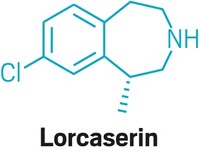Advertisement
Grab your lab coat. Let's get started
Welcome!
Welcome!
Create an account below to get 6 C&EN articles per month, receive newsletters and more - all free.
It seems this is your first time logging in online. Please enter the following information to continue.
As an ACS member you automatically get access to this site. All we need is few more details to create your reading experience.
Not you? Sign in with a different account.
Not you? Sign in with a different account.
ERROR 1
ERROR 1
ERROR 2
ERROR 2
ERROR 2
ERROR 2
ERROR 2
Password and Confirm password must match.
If you have an ACS member number, please enter it here so we can link this account to your membership. (optional)
ERROR 2
ACS values your privacy. By submitting your information, you are gaining access to C&EN and subscribing to our weekly newsletter. We use the information you provide to make your reading experience better, and we will never sell your data to third party members.
Pharmaceuticals
Crestor's Side-effect Rate Higher Than Other Statins
by BETTE HILEMAN
May 30, 2005
| A version of this story appeared in
Volume 83, Issue 22
Crestor is associated with a higher rate of muscle and kidney complications than other cholesterol-lowering drugs, researchers report in a study published in the online edition of Circulation (published online May 23, www.circulationaha.org).
By analyzing postmarket adverse event reporting for four cholesterol-lowering drugs known as statins--AstraZeneca's Crestor, Pfizer's Lipitor, Merck's Zocor, and Bristol-Myers Squibb's Pravachol--physicians found that the side-effect rate for Crestor is more than double the rates for the other three drugs.
Crestor's side effects include muscle damage, protein in the urine, a reduced ability of the kidneys to filter toxins from the blood, and kidney failure. The absolute rate of adverse events, however, is low. During the first year of marketing, 145 muscle or kidney problems were associated with 5.2 million Crestor prescriptions.
The Food & Drug Administration, which in March rejected a petition from the watchdog group Public Citizen to ban Crestor, had no comment on the study. AstraZeneca says in a statement that it "stands fully behind the safety and effectiveness of Crestor when the product is used according to the prescribing information."
The authors of the Circulation article warn doctors that some patients may still need Crestor. "Several studies clearly show that statins reduce heart disease, stroke, and total mortality," says senior author Richard H. Karas, director of the Preventive Cardiology Center at Tufts-New England Medical Center. He recommends that Crestor, which is the strongest of the four statins, be given to patients whose cholesterol levels resist treatment with other statins.





Join the conversation
Contact the reporter
Submit a Letter to the Editor for publication
Engage with us on Twitter